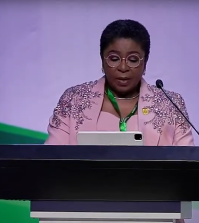Nigerian public sector move to new accounting system could ‘help fight corruption’

Government and public sector organisations in Nigeria will adopt International Public Accounting Standards (IPSAS), which are regarded as the most transparent form of accounting, in a move that could help fight corruption in the country, This Day has reported.
Launching the manual for IPSAS – a system which takes account of assets, such as invoices raised or received but not paid; loans or debt; and liabilities – vice-president Namadi Sambo said last week: “The adoption of accrual-basis of accounting is believed to present a complete, true and fair view of accounting and promote transparency and accountability in financial reporting for public sector entities.
“The manual being presented and launched today provides the policies, processes and procedures to adhere to with the recognition, recording and reporting of financial transactions of the public sector entities.
“With the launch of the manual, government hereby directs that all public sector entities must fully comply with its provisions. Budgetary provisions should also be made to assist in the accrual accounting concepts especially in the process for identification and valuation of all government asset.”
All tiers of government have been instructed to implement IPSAS by January 2016.
Also speaking at the event, the Auditor General for the Federation, Samuel Ukura, said the adoption of accrual-based accounting standards would fight corruption in the country.
He said: “In this system, financial decisions are not seen merely from the point of view of cash inflow or outflow but also from their impact on the assets and liability position of the government.
“It bridges the gap leftover by the cash accounting by inclusion of accrued expenses and revenues, physical assets, capital work in progress and depreciation, pension liabilities and provisions in the accounting system.”
The step has been welcomed by the Chartered Institute of Public Finance and Accountancy (CIPFA) – a professional institute for accountants working in public services.
CIPFA’s chief executive Rob Whiteman told Global Government Forum: “This is very welcome and another example of the real progress being made in Nigeria to see improved standards and sound public financial management alongside good governance and accountability.
“Nigeria has taken a real lead in the implementation of IPSAS in Africa and this has been reflected in the significant demand for quality training for finance staff at all levels of Government.
“CIPFA is working in partnership with the Institute of Chartered Accountants of Nigeria (ICAN) to help facilitate the implementation of IPSAS in Nigeria and to address the real and growing demand for skills and training.”





















